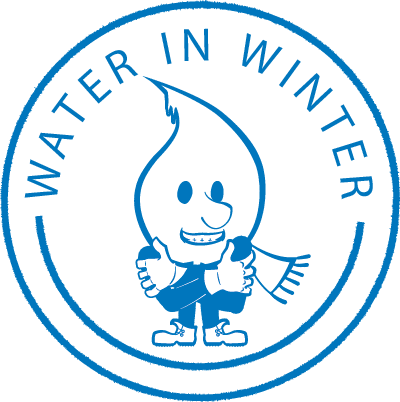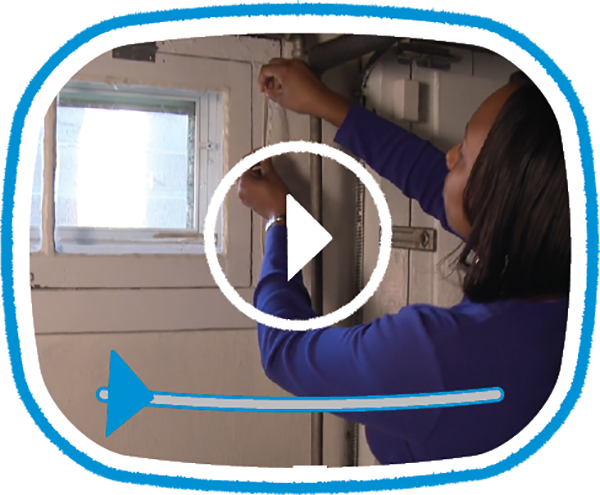There’s no water at my tap. Now what?
First, ask a neighbor if they have water.
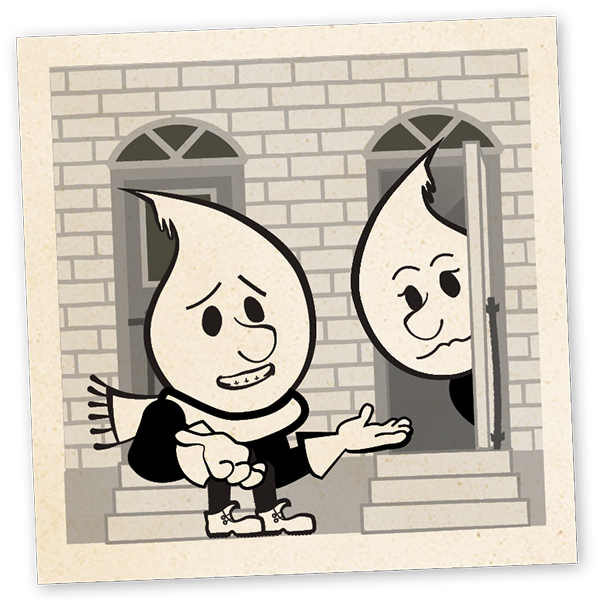
If they don’t have water, it may be the result of a water main break.
But if they do have running water, it’s likely your pipes have frozen.
What if your pipes have frozen?
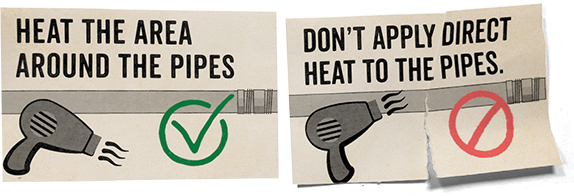
- Make sure the faucet is turned on so melting water can drip out
- After pipes thaw, look for damage. Check your pipes and the meter. If the meter is leaking, call (215) 685-6300.
If a pipe is damaged:
Shut off the water. Use the house-side valve, near your water meter.
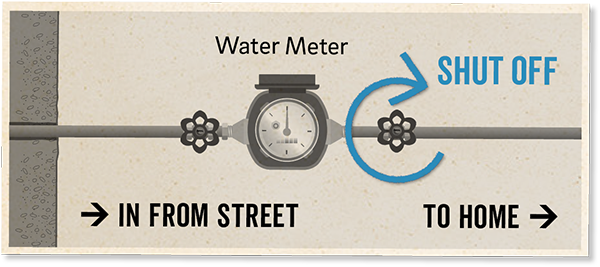
A licensed plumber must make repairs.
The Philadelphia Water Department is not responsible for your pipes, even if they are outside of your home.
We know broken pipes can be a nightmare.
But we cannot fix your pipes.
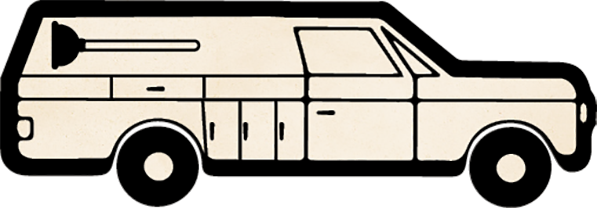
See a list of licensed contractors: phila.gov/li
Calling our hotline when your pipes break can waste time needed to secure a plumber and ties up city resources needed to respond to emergencies.
Low temps predicted? You can prepare!
Take action when the forecast calls for temperatures below 32°F!
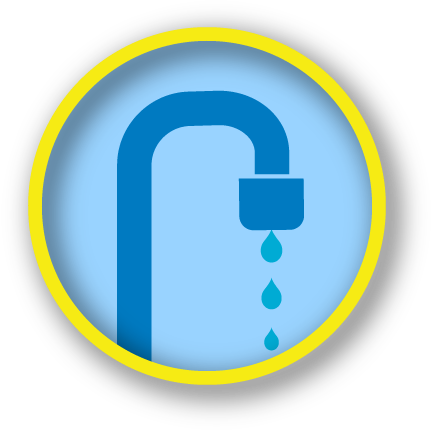
Let faucet run at a trickle overnight during extremely cold weather.
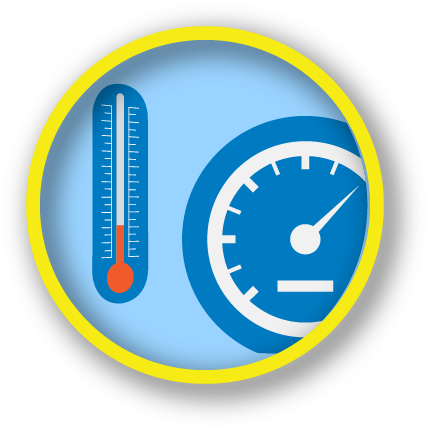
Keep water meter area above 40 degrees Fahrenheit.
Check your faucets for water flow and pressure before you go to sleep and again when you wake up.
The first sign of freezing is reduced water flow from a faucet.
These tips cost only a few pennies. That’s a fraction of a plumbing repair bill!
Winterize your home to avoid a nightmare repair bill.
Find your shut off valves before there’s an emergency!
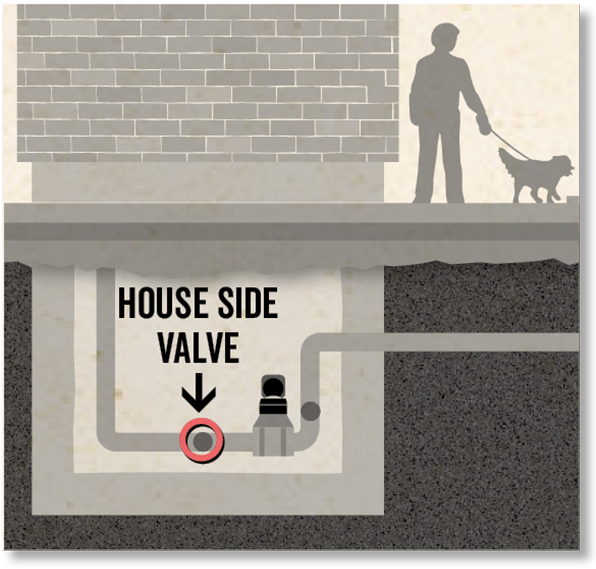
They’re usually near the water meter. In emergencies, use the house-side valve to shut off your water supply.
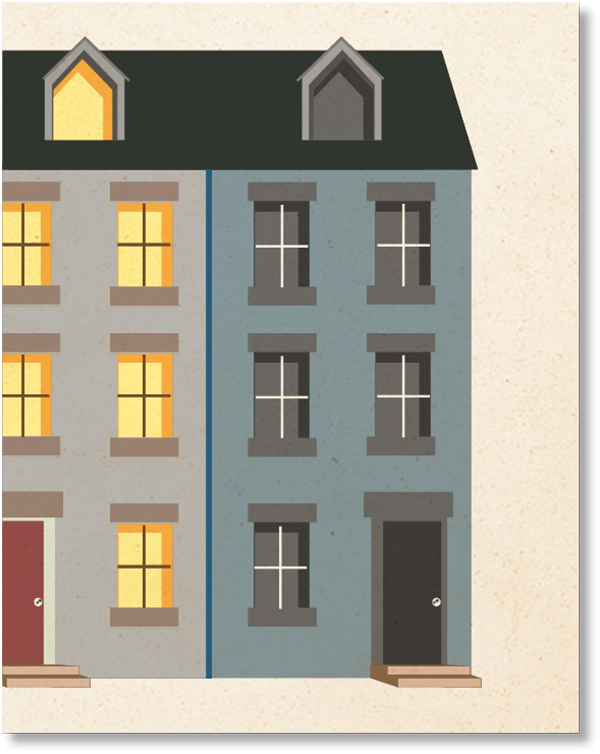
Vacant Property?
If you plan to be away from home or own a property that is vacant during cold weather, drain and winterize your home plumbing system.

Wrap and insulate all water pipes in unheated areas, like your basement. Pay close attention to pipes near exterior walls, especially in kitchens and bathrooms.

Repair or replace broken exterior windows. Cover windows with plastic and caulk windows near water meters and pipes. When cold air blows on a pipe, it increases the risk of freezing.
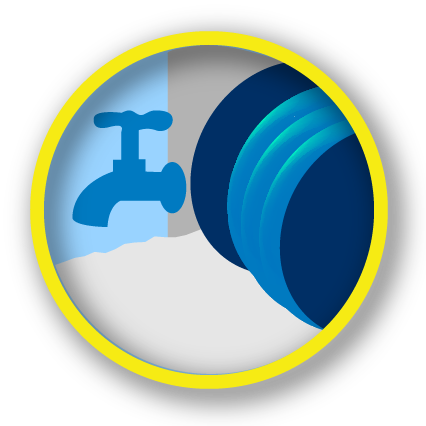
Disconnect garden hoses and shut off the outdoor water supply. Most outdoor faucets have a dedicated shutoff valve inside; use that valve, and leave the outside faucet open to drain the remaining section of pipe.

